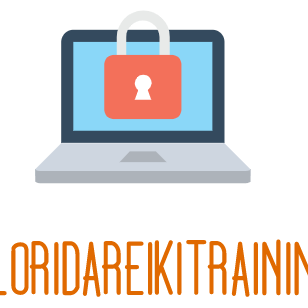Mastering EMS Report Writing: A Comprehensive Guide In the fast-paced…

Mastering EMS Report Writing: A Comprehensive Guide
In the fast-paced world of Emergency Medical Services (EMS), accurate documentation is not only a matter of professional practice but also a crucial tool for ensuring continuity of care and legal protection. EMS report writing serves as the formal record of the patient encounter and plays a critical role in the healthcare system. Whether you’re a seasoned paramedic, an aspiring EMT, or part of the administrative staff, mastering the skill of EMS report writing is essential. In this comprehensive guide, we’ll delve into the nuances of creating detailed, accurate, and effective EMS reports that can stand the test of time and scrutiny.
The Importance of Effective EMS Reports
EMS reports are more than just paperwork; they are a vital component of the patient care continuum. They provide a narrative of the patient’s condition, the care provided, and the response to treatment, which is invaluable to subsequent healthcare providers. Effective reports can influence the course of medical care, support clinical decision-making, and serve as legal documents in cases of litigation. As such, the quality of ems report writing can significantly impact patient outcomes and the legal integrity of EMS providers.
The Anatomy of an EMS Report
A well-constructed EMS report comprises several key elements that collectively paint a comprehensive picture of the incident. Let’s break down these components:
–
Patient Demographics
: This section includes the patient’s name, age, gender, and other identifying information necessary for proper identification and record-keeping.
–
Chief Complaint
: The reason for the EMS activation, as reported by the patient or bystanders.
–
History of Present Illness
: Detailed information about the current medical issue and events leading up to the EMS call.
–
Past Medical History
: Relevant medical history, including allergies, medications, and previous medical conditions that could affect the patient’s current situation and treatment.
–
Assessment Findings
: A systematic account of the patient’s physical examination, vital signs, and mental status.
–
Interventions and Treatment
: A chronological log of the procedures performed, medications administered, and the patient’s response to each intervention.
–
Narrative
: A descriptive narrative that ties all the above elements together, providing context and additional details not captured in check boxes or predefined fields.
–
Disposition
: The outcome of the incident, including where the patient was transported and the condition upon transfer of care.
Principles of Quality EMS Report Writing
To excel in EMS report writing, there are several guiding principles that one should follow:
–
Accuracy
: Ensure all information is factual, with no embellishments or omissions. Mistakes can jeopardize patient care and legal proceedings.
–
Clarity
: Keep the report clear and understandable, avoiding jargon and abbreviations that may not be universally recognized.
–
Objectivity
: Document findings and events without personal bias or interpretation.
–
Timeliness
: Complete reports promptly while events are fresh in your memory, as this increases the accuracy and usefulness of the report.
–
Confidentiality
: Maintain patient privacy by following HIPAA guidelines and ensuring reports are securely stored and transmitted.
Common Pitfalls in EMS Report Writing
Even experienced EMS professionals can fall into traps that compromise the quality of their reports. Some common pitfalls include:
–
Incomplete Information
: Failing to include all relevant patient data or leaving sections blank.
–
Subjectivity
: Allowing personal opinions or assumptions to influence the report.
–
Poor Structure
: Disorganized reports can make it difficult for others to follow the sequence of events and understand the patient’s situation.
–
Illegibility
: In the case of handwritten reports, illegible writing can render essential information useless.
Tips and Tricks for Effective EMS Report Writing
Here are some valuable tips to enhance your EMS report writing skills:
–
Use Chronological Order
: Narrate events as they happened to maintain logical flow and coherence.
–
Be Descriptive
: Paint a vivid picture of the scene and patient’s condition without resorting to dramatic language.
–
Stay Professional
: Maintain a professional tone throughout the report, even in stressful or challenging situations.
–
Proofread
: Always review your report for errors, omissions, and clarity before submitting it.
The Role of Technology in EMS Report Writing
Advancements in technology have revolutionized EMS report writing. Electronic Patient Care Reports (ePCRs) and mobile data terminals have replaced paper forms in many jurisdictions, offering several advantages:
–
Efficiency
: Digital reports can be completed more quickly and transmitted instantly to hospitals and billing departments.
–
Legibility
: Typed reports eliminate the issues associated with poor handwriting.
–
Data Analysis
: Electronic reports allow for the collection and analysis of large data sets, aiding in research and quality improvement initiatives.
Legal and Ethical Considerations
EMS reports are legal documents that can be used in court proceedings. Health care professionals must understand the legal and ethical implications of their documentation. Ethical EMS report writing involves:
–
Honesty
: Documenting exactly what was said and done, without altering facts to cover errors or oversights.
–
Accountability
: Taking responsibility for your actions and documenting them accurately.
–
Respect for Privacy
: Ensuring that patient information is shared only with those who have a legal and professional right to know.
Ongoing Education and Improvement
EMS report writing is a skill that requires continuous refinement. Providers should seek out educational opportunities, such as workshops and continuing education courses, to stay current with best practices and legal requirements. Peer review and quality assurance programs within EMS agencies can also help identify areas for improvement and ensure that high standards are maintained.
Conclusion
In conclusion, EMS report writing is a critical skill that has far-reaching implications for patient care, legal integrity, and the medical community as a whole. By adhering to the principles of accuracy, clarity, objectivity, timeliness, and confidentiality, EMS providers can create reports that effectively communicate the essential details of their patient encounters. As technology continues to evolve and the demand for high-quality documentation grows, it is incumbent upon all EMS professionals to hone their report writing abilities and contribute to the well-being of the patients they serve. With the right approach and dedication to excellence, EMS report writing can be mastered, leading to improved patient outcomes and enhanced professional standards within the EMS community.




